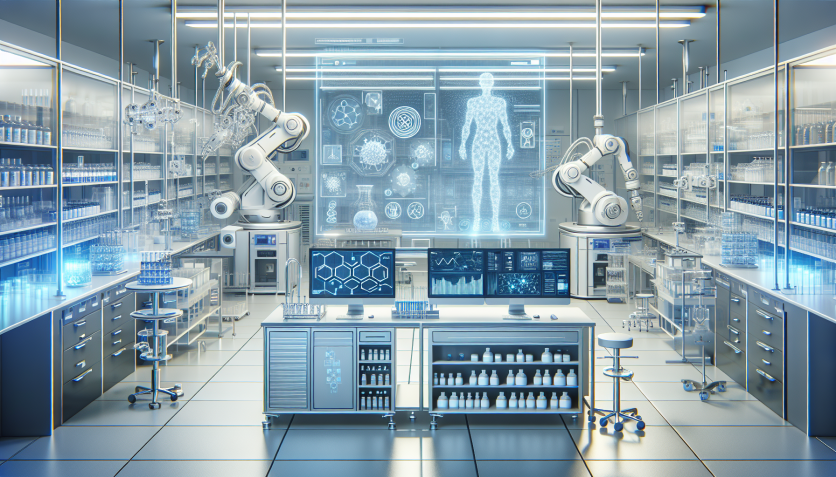
The integration of artificial intelligence (AI) in pharmaceutical research and development (R&D) is transforming the industry. These advancements are not only accelerating drug discovery but also enhancing accuracy and reducing costs. The impact of AI on pharmaceutical R&D is profound, with significant implications for the future of medicine.
As a reader interested in the intersection of technology and science, understanding how AI is reshaping pharmaceutical R&D is crucial. The shift to AI-driven methodologies promises to make drug development more efficient and effective. This transformation is happening rapidly, with numerous companies already leveraging AI to streamline their processes.
The Role of AI in Drug Discovery
AI tools are proving to be game-changers in the initial stages of drug discovery. By analyzing vast datasets quickly, these tools can identify potential drug candidates with unprecedented speed. For instance, machine learning algorithms can predict how different compounds will interact with biological targets, significantly reducing the time required for preliminary testing.
Moreover, AI's ability to adhere to stringent requirements such as drug impurity standards ensures that the compounds identified are both effective and safe for further development. This level of precision is vital in an industry where even minor errors can lead to significant setbacks. As a result, pharmaceutical companies are increasingly investing in AI technologies to enhance their R&D capabilities.
AI's Impact on Clinical Trials
Clinical trials are another critical area where AI is making a substantial impact. Traditional clinical trials are often time-consuming and expensive, with high failure rates. However, by utilizing AI, researchers can design more efficient trials, identify suitable candidates faster, and predict outcomes more accurately.
The use of AI-powered analytics enables real-time monitoring and adjustment of trials, ensuring better compliance and data integrity. Consequently, the likelihood of trial success increases, reducing overall development costs and speeding up the time-to-market for new drugs.
Enhancing Patient Outcomes Through Personalized Medicine
One of the most promising aspects of AI in pharmaceutical R&D is its potential to personalize medicine. By analyzing patient data, including genetic information and medical history, AI can help develop tailored treatment plans that maximize efficacy and minimize adverse effects. This individualized approach promises to improve patient outcomes significantly.
The relevance of personalized medicine cannot be overstated, as it addresses the limitations of one-size-fits-all treatments. In addition to improving therapeutic results, personalized medicine also contributes to better resource allocation within healthcare systems. Patients receive treatments that are more likely to work for them, reducing trial-and-error prescriptions and associated costs.
The Future of Pharmaceutical R&D with AI
Looking ahead, the integration of AI in pharmaceutical R&D is expected to deepen. Emerging technologies such as quantum computing and advanced robotics will further enhance AI's capabilities. As these tools evolve, they will likely lead to even greater efficiencies and breakthroughs in drug development.
For professionals in the field, staying informed about these advancements is crucial. The pace at which technology is advancing means that new opportunities and challenges will continue to arise. By embracing AI-driven innovations, the pharmaceutical industry can look forward to a future where life-saving treatments are developed faster and more efficiently than ever before.
ⓒ 2025 TECHTIMES.com All rights reserved. Do not reproduce without permission.



![Best Gaming Mouse For Gamers With Smaller Hands [2025]](https://d.techtimes.com/en/full/461466/best-gaming-mouse-gamers-smaller-hands-2025.png?w=184&h=103&f=6fd057ef777bd39251d4e7e82e9b23f1)

